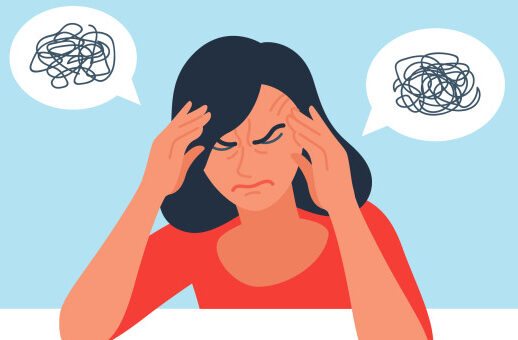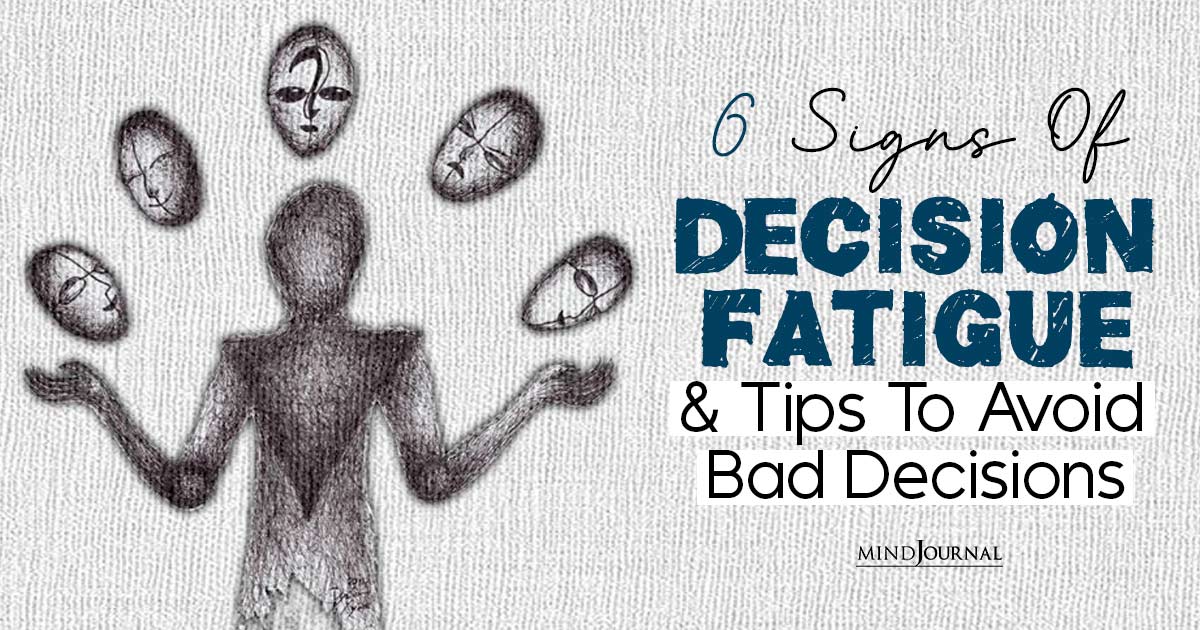You know those days when you feel completely drained, mentally exhausted, and even the smallest decisions seem like monumental tasks? That’s what is decision fatigue in action.
Maybe you’ve pondered for ages in front of a restaurant menu or struggled to pick an outfit from your closet. Let’s dive in and explore to understand decision fatigue meaning, and see if it’s as real as it sounds.
What Is Decision Fatigue Meaning?
Decision making fatigue is the decline in decision quality after extended decision-making sessions. It’s a reason for irrational trade-offs in choices, explored in psychology and decision science.

Read more here: How To Make Smart Decisions Intuitively
It’s the end of a busy day, and you’ve had to make countless decisions – from what to eat for breakfast to which project to prioritize at work. By the time evening rolls around, you feel mentally exhausted, almost as if your brain just wants to switch off.
In simple terms, decision overload is when the quality of your choices declines after making many decisions. It’s like your brain’s fuel running low, leading to poor judgments.
Is Decision Fatigue Real?
This concept is real and well-documented by research. In one famous experiment, shoppers at a supermarket were more likely to make unhealthy food choices as the day progressed. Why? Because they had already made numerous decisions while shopping, depleting their cognitive resources, and leading to impulsive selections.
Decision Fatigue Examples
Below are some decision fatigue examples in action for you to understand this concept:
1. Choosing an Outfit
Ever stared at your closet for minutes on end, only to end up wearing the same thing you wore yesterday? That’s decision fatigue at play. By the time you’re done deciding what to wear, you might not have the mental energy to tackle other choices later in the day.
Read more here: How To Become Wise
2. Menu Dilemma
Have you ever experienced ordering the same dish at a restaurant because you couldn’t handle deciding between all the options? This happens when your brain opts for the easiest choice to conserve energy.
3. Work Overload
Imagine being bombarded with back-to-back meetings where you need to make important decisions. By the time you’re asked to give input on the final matter, your decision-making ability might be compromised.
4. Parenting
Constantly making decisions for your children, from meals to activities, can leave you mentally drained, potentially impacting the quality of your choices.
5. Financial Fatigue
Think about handling your finances – budgeting, investing, or making significant purchases. Continuously weighing pros and cons can be draining.
If you’ve been making financial decisions all day, you might be more inclined to agree to a deal or investment that you wouldn’t have under different circumstances.
6 Signs You Have Decision Fatigue
- Indecisiveness over trivial choices.
- Feeling mentally drained after decision-making.
- Opting for the easiest choice to avoid deciding.
- Making impulsive decisions to end the process quickly.
- Experiencing frustration or irritability during choices.
- Seeing a decline in the quality of your decisions.
There are many ways to navigate what is decision fatigue and here are some tested strategies to help you.
5 Ways To Defog Your Brain And Combat Fatigue
- Prioritize: Focus on the most important decisions early in the day when your mental energy is at its peak.
- Limit Choices: Embrace minimalism when possible. Reduce the number of options you give yourself – whether it’s in your wardrobe, your meals, or even your work tasks.
- Routines: Establishing daily routines can eliminate the need to make certain decisions, freeing up mental space for more significant choices.
- Take Breaks: Give your brain a breather. Stepping away from decisions and engaging in relaxing activities can rejuvenate your decision-making abilities.
- Delegate: If possible, delegate some decisions to others. Sharing the decision-making load can prevent you from feeling overwhelmed.
Read more here: 7 Strategies For Smarter Decision-Making, According to Science
Final Thoughts
So, the next time you ask yourself, is decision fatigue real? Remember that our brains have limits. By understanding and managing decision fatigue, you can regain control over your choices and ensure that your mental energy is spent where it matters most.










Leave a Reply